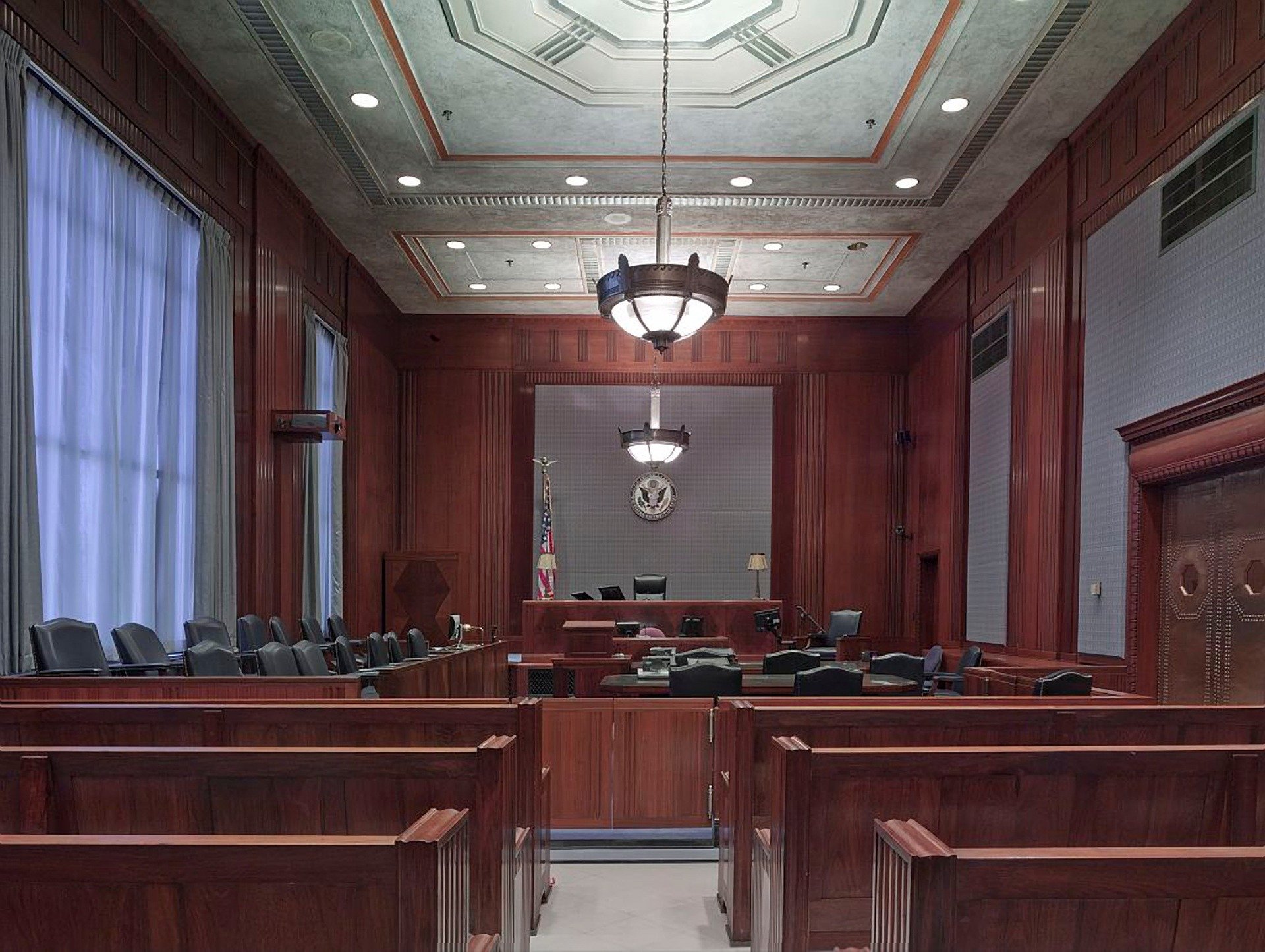How to Obtain a Jury Trial in Florida When There is a Jury Waiver in Your Contract (Revival of the “Advisory Jury”)
- By : Cbh
- Category : Clauses from Contracts

A new case revives an old method to avoid an express contractual jury waiver by asking for an “advisory jury.” Here’s how it works for plaintiffs and how lawyers who write contracts can address it.
For years I have recommended that clients consider an express jury waiver in their contracts rather than a pre-suit mediation or arbitration clause. Two reasons leap to mind: (1) a bench trial is subsidized by the state so the parties do not have the added expense of an arbitrator (or panel) and cost of the location and (2) you retain all rules of evidence and rights of appeal. A jury waiver is also cheaper to enforce: Florida appellate courts issue decisions on arbitration enforcement on a monthly basis but there are few opinions on enforcing a jury waiver. Indeed, it is hard to argue to the judge that a bench trial is somehow unfair.
Enter a new escape valve for those wishing to avoid even the best-written jury waivers. In a recent circuit court case out of Duval County, the Honorable Waddell Wallace, III ruled in Michele Baumgartner v. Mid-America Apartment Communities, Inc. that he wanted an “advisory jury” to assist the court in deciding a slip-and-fall accident.
The Order (reproduced below) does not spell out the terms of the jury waiver in the subject contract. It’s apparently quite broad. According to the facts, the Plaintiff fell at her apartment complex and there was a jury waiver in her rental agreement. The Plaintiff argued that the duty to maintain the premises was a general one owed to the public and did not arise from the agreement; the Defendant successfully argued that the Plaintiff was an invitee on the property due to the contract and “plaintiff’s tort claim for the slip and fall injury is ‘related to’ the lease and thus subject to the lease’s waiver of jury trial provision.”
So, the Court ruled the jury waiver was valid. We’re done, right? No.
“When the parties to this civil action have waived their right to a jury trial, or a jury trial is not available as a matter of right, the trial court is nevertheless vested with the authority to appoint an advisory jury.”
That’s probably news to most civil practitioners. The source citation goes back twenty-four years to a Third DCA case, Gelco Co. v. Campanile and an even older case from 1992, Vista Centre Venture v. Unlike Anything, Inc. Despite that vested precedent, there’s been little to no reference in Florida law to an “advisory jury” for decades.
In Gelco, the court found a binding jury waiver and held that, “[a] trial court commits error when it chooses to ignore the parties’ contractual waiver of a jury trial and orders a common law jury trial unless there is a showing why the waiver should not be enforced; here, no such circumstances have been alleged.”
Here’s the twist: “[o]n the other hand, we observe that while the parties have effectively waived their right to a common law jury trial, the trial court may in its discretion utilize an advisory jury.” The citations are to a Tenth Circuit (federal court) case and… a 1977 West Virginia case. So a 1996 Florida appellate court reached further back in time and into two distant jurisdictions to unearth the “advisory jury.”
The Gelco court continued, “[a]n advisory jury does not interfere with the parties’ contractual agreement because the trial court is not bound by the findings of fact made by the advisory jury, thus, the parties are receiving what they contracted for a trial by the court.“
As a practitioner, there is a profound difference between preparing for a jury versus a bench trial even if the jury is “advisory.” Jury trials are more expensive. I can conceive of a number of reasons why there is a dearth of Florida-specific, modern case law on point. Also, from the jurors’ perspective, one might question the quality use of their time being pulled out of regular life for jury duty just to “advise” on a run-of-the-mill personal injury case.
Back to our 2020 Baumgartner case, the Order reads that the “Court is therefore required to force the jury trial waiver” (emphasis added). At the risk of over-reading, the wording might suggest what this judge thinks of alternative dispute clauses.
The Order concludes, “[i]n a case such as this, a claim for personal injuries arising from a slip and fall incident, the Court finds that it would be particularly appropriate to impanel an advisory jury. The trial court shall remain ultimately responsible for making the findings of fact and conclusions of law necessary to resolve the issues framed by the pleadings.”
So, plaintiff lawyers might consider arguing for an “advisory jury” the next time they are confronted with a jury waiver. Meanwhile, lawyers who write jury waivers in their client contracts may also wish to exclude “advisory juries.”
Does your contract limit liability to the fullest extent of the law? Does it include mandatory personal and subject matter jurisdiction? Does it include an enforceable attorney fee clause? If your contract has not been updated in at least the last five years, there has been considerable new case law which might invalidate the form contract you rely upon every day. This Baumgarner case is one of them.
Find a litigator, not just a contract-drafter, who has experience both at the trial and appellate level enforcing these clauses. Be sure to contact a qualified attorney in your jurisdiction.
HERE IS THE ORDER:
MICHELE BAUMGARTNER, Plaintiff, v. MID-AMERICA APARTMENT COMMUNITIES, INC.,
Defendant. Circuit Court, 4th Judicial Circuit in and for Duval County. Case No. 16-2018-CA-3421-AXXX,
Division CV-A. February 21, 2020.
ORDER STRIKING PLAINTIFF’S DEMAND FOR
JURY TRIAL AND EMPANELLING ADVISORY JURY
This case is before the Court for consideration of the Amended Motion to Strike Plaintiff’s Demand for Jury Trial, filed December 19, 2019, by defendant, Mid-America Apartment Communities, Inc.
In this action, plaintiff, Michelle Baumgartner, alleges that she was injured in a slip- and- fall accident that occurred on the premises of an apartment community owned and operated by defendant, Mid-America Apartment Communities, Inc. Plaintiff is a party to a lease agreement with defendant in which plaintiff leased from defendant an apartment unit on the premises where the slip and fall incident occurred. Plaintiff’s claim is based on an alleged duty arising in tort requiring defendant to maintain the premises of the apartment community in a condition that is reasonably safe. Plaintiff, therefore, is suing to enforce a duty defendant owes to the general public and thus is not suing under an obligation arising under the subject lease. For that reason, plaintiff argues that the waiver of jury trial provision in the lease between plaintiff and defendant does not apply to the claim asserted in this action. In response, defendant argues that, in asserting her claim, plaintiff relies on her status as an invitee and that status is created by plaintiff’s status as a tenant under the subject lease. To this extent, therefore, defendant argues that plaintiff’s tort claim for the slip and fall injury is “related to” the lease and thus subject to the lease’s waiver of jury trial provision.
Considering the breath of the “related to” language, the Court concludes that plaintiff’s claim against defendant does rely at least in part on her status as a tenant, which status arises under the lease, and thus plaintiff’s claim is “related to” and governed by the waiver of jury trial provision in the lease.
Under Florida law, the parties to a contract may waive the right to a jury trial for claims arising out of or related to the contract. See, for example, Vista Centre Venture v. Unlike Anything, Inc., 603 So. 2d 576 (Fla. 5th DCA
1992); Palomares v. Ocean Bank of Miami, 574 So.2d 1159 (Fla. 3d DCA 1991); and C & C Wholesale v. Fusco Management, 564 So.2d 1259, 1261 (Fla. 2d DCA 1990). The record does not contain any evidence showing
that the subject lease, “as a whole,” is either procedurally or substantively unconscionable. See 564 So.2d at
The Court is therefore required to force the jury trial waiver and strike Plaintiff’s demand for jury trial.
When the parties to this civil action have waived their right to a jury trial, or a jury trial is not available as a matter of right, the trial court is nevertheless vested with the authority to appoint an advisory jury. See Gelco Co. v. Campanile Motor Service Inc., 677 So.2d 952 (Fla. 3d DCA 1996) [21 Fla. L. Weekly D1719a]; and Vista Centre, 603 So.2d at 579. In a case such as this, a claim for personal injuries arising from a slip and fall incident, the Court finds that it would be particularly appropriate to impanel an advisory jury. The trial court shall remain ultimately responsible for making the findings of fact and conclusions of law necessary to resolve the issues framed by the pleadings.
Accordingly, for the reasons stated, it is
ORDERED:
- Defendant’s Amended Motion to Strike Plaintiff’s Demand for Jury Trial is GRANTED.
- This Court’s pretrial order entered November 7, 2019, setting this action for jury trial, is amended to provide
that this action is now set for a nonjury trial by the Court. All other terms of the pretrial order shall remain in full
force and effect. - At the time of trial, the Court shall impanel an advisory jury to assist the Court in deciding the issues framed
by the pleadings.
Image by David Mark from Pixabay


